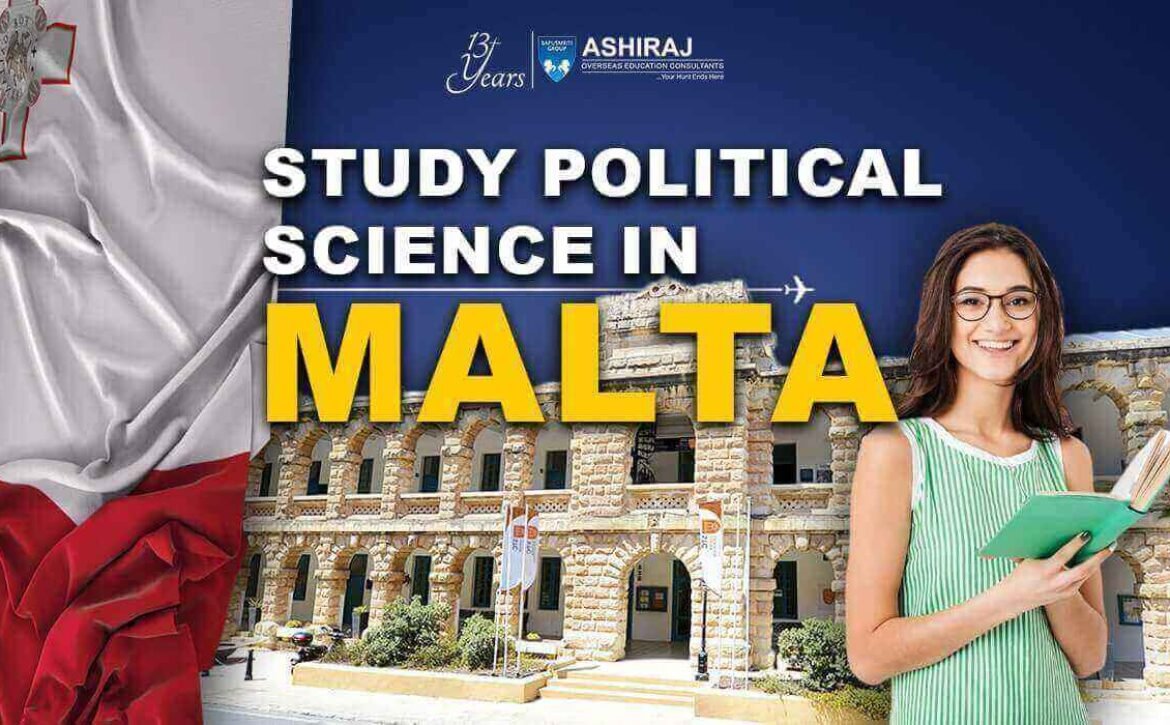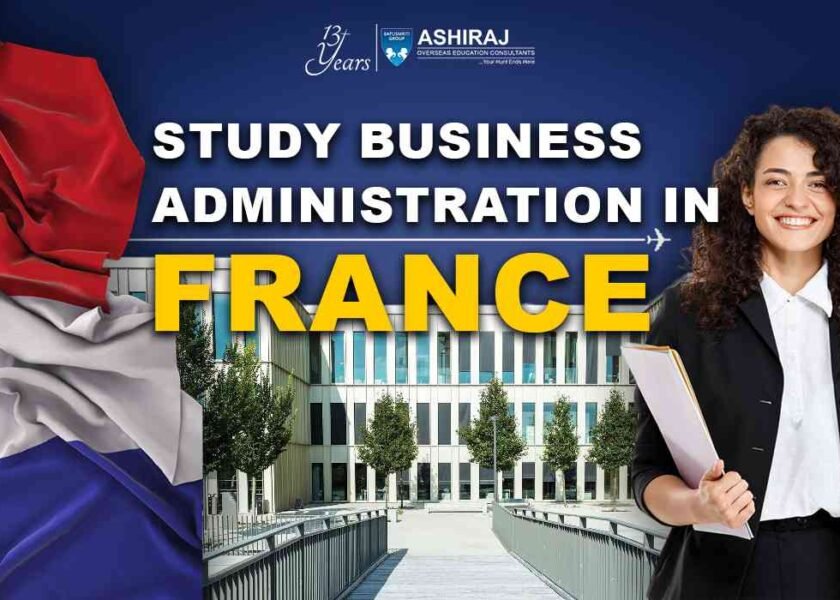
Political Science in Malta
Political Science in Malta encompasses a multifaceted exploration of the country’s political landscape, institutions, and dynamics. Malta, an archipelago in the Mediterranean Sea, boasts a rich political history marked by various influences, including colonialism, independence movements, and European integration. From its ancient roots to modern governance structures, the study of political science in Malta offers insights into the intricacies of its democratic processes, party politics, and policy-making frameworks. Scholars and practitioners delve into topics such as constitutional law, international relations, and comparative politics to understand Malta’s role on the global stage and its domestic challenges.
With its unique geopolitical position and membership in the European Union, Political Science in Malta serves as a vital lens through which to examine regional dynamics and transnational governance issues. Scholars in this field analyze Malta’s interactions with neighboring states, its participation in international organizations, and the impact of globalization on its socio-political landscape. Moreover, the study of Political Science in Malta fosters critical thinking and civic engagement, empowering individuals to navigate complex political environments and contribute to the country’s democratic development.
Why to Study Political Science in Malta?
- Rich Political History: Malta boasts a diverse and intriguing political history, providing students with a fascinating backdrop for their studies.
- European Integration: As a member of the European Union, Malta offers unique insights into the dynamics of regional cooperation and integration, making it an ideal location to study political science within a European context.
- Geopolitical Significance: Situated in the Mediterranean, Malta’s strategic location makes it a focal point for analyzing global politics, including migration, security, and trade dynamics.
- Democratic Processes: Students can observe firsthand Malta’s democratic institutions in action, gaining valuable insights into electoral systems, party politics, and governance structures.
- International Relations: With its active participation in international organizations and diplomatic initiatives, studying political science in Malta provides students with a nuanced understanding of global affairs.
- Cultural Diversity: Malta’s multicultural society offers students the opportunity to engage with diverse perspectives, enriching their understanding of political issues and fostering cross-cultural dialogue.
- Practical Experience: Through internships, research projects, and engagement with policymakers, students can gain practical experience and contribute to Malta’s democratic development.
- Career Opportunities: A degree in political science from Malta equips students with analytical, communication, and critical thinking skills sought after in various fields, including government, diplomacy, NGOs, and academia.
By studying Political Science in Malta, students can explore a vibrant political landscape while gaining valuable insights into global governance and democratic processes.
Top Universities to Study Political Science in Malta
University | QS World University Ranking 2023 | Type of University | Average Annual Fees | Programs Offered |
University of Malta | 301-350 | Public | €1,500 – €2,500 | Political Science, International Relations, Law |
Malta College of Arts, Sciences and Technology (MCAST) | Not Ranked | Public | €1,000 – €2,000 | Diplomacy, Political Theory, Governance |
American University of Malta | Not Ranked | Private | €5,000 – €7,000 | Political Economy, Comparative Politics, Ethics |
Institute of Tourism Studies (ITS) Malta | Not Ranked | Public | €1,000 – €2,000 | Political Communication, Public Policy, Development Studies |
Global College Malta | Not Ranked | Private | €4,000 – €6,000 | Political Psychology, European Studies, Conflict Resolution |
Political Science in Malta is offered across various reputable universities, providing students with diverse options to pursue their academic interests. The University of Malta, a leading institution, offers a comprehensive range of programs in Political Science, International Relations, and Law at an affordable cost. Additionally, public institutions like the Malta College of Arts, Sciences and Technology (MCAST) and the Institute of Tourism Studies (ITS) Malta offer specialized programs focusing on diplomacy, political theory, and public policy. Private universities such as the American University of Malta and Global College Malta provide unique perspectives on political economy, comparative politics, and conflict resolution, albeit at a higher tuition fee. Overall, these top universities in Malta offer quality education and opportunities for students to excel in the field of Political Science.
Course Curriculum for Political Science in Malta
- Foundational Courses: Political Science programs in Malta typically begin with foundational courses covering topics such as political theory, comparative politics, and international relations, providing students with a broad understanding of key concepts and theories.
- Specialized Electives: As students progress, they have the opportunity to choose from a range of specialized electives tailored to their interests, including areas such as public policy analysis, diplomatic studies, and European Union politics, allowing for deeper exploration within specific subfields.
- Practical Training: Many programs incorporate practical training components such as internships, research projects, and simulations of political processes, providing students with hands-on experience and valuable skills applicable to real-world scenarios.
- Interdisciplinary Approach: Political Science programs in Malta often adopt an interdisciplinary approach, incorporating insights from related fields such as sociology, economics, and history, enriching students’ understanding of complex political phenomena.
- Capstone Projects: Towards the end of their studies, students typically engage in capstone projects or seminars where they apply their knowledge and skills to analyze contemporary political issues or conduct original research, culminating in a comprehensive academic endeavor.
Political Science in Malta offers a dynamic and comprehensive curriculum designed to equip students with the knowledge, skills, and analytical tools necessary to navigate the complexities of the political landscape, both domestically and internationally. Through a blend of theoretical coursework, practical training, and interdisciplinary perspectives, students are prepared to engage critically with pressing political challenges and contribute meaningfully to society.
Eligibility Criteria & Admission Requirements for MS in Political Science in Malta
- Language Proficiency: Applicants are typically required to demonstrate proficiency in English through standardized tests such as IELTS or TOEFL. A minimum score of 6.5 for IELTS or 90 for TOEFL is commonly accepted.
- Standardized Tests: Some universities may also require scores from standardized tests such as GRE or GMAT. While specific score requirements vary, a competitive score is generally expected, with a typical range falling between 150-160 for GRE and 600-700 for GMAT.
- Educational Background: Applicants should hold a bachelor’s degree or its equivalent from a recognized institution, preferably in a related field such as Political Science, International Relations, or Public Administration.
- Passport & Student Visa: International students must possess a valid passport and obtain a student visa to study in Malta. Visa requirements may vary depending on the student’s country of origin.
- Academic Certificates: Applicants are required to submit academic transcripts and certificates attesting to their previous educational qualifications, including degrees earned and relevant coursework.
- Work Experience: While not always mandatory, some programs may prefer applicants with relevant work experience in areas such as government, public policy, or international affairs, particularly for advanced or specialized programs.
Test | Minimum Score |
IELTS | 6.5 |
TOEFL | 90 |
GRE | 150-160 |
GMAT | 600-700 |
Political Science in Malta welcomes applicants who meet these eligibility criteria, ensuring a diverse and qualified student body prepared to excel in their academic pursuits.
Documents Required for Studying Political Science in Malta
- Passport: A valid passport is essential for international students applying to study Political Science in Malta, serving as proof of identity and nationality.
- Letters of Recommendation (LOR): Typically, two letters of recommendation from academic or professional references are required to attest to the applicant’s qualifications and suitability for the program.
- Statement of Purpose (SOP): An SOP outlining the applicant’s academic background, career goals, and reasons for pursuing Political Science in Malta is commonly required to assess their motivation and fit for the program.
- Curriculum Vitae (CV): A comprehensive CV detailing the applicant’s educational qualifications, work experience, research projects, publications, and extracurricular activities provides additional insight into their profile.
- Official High School Transcripts and Educational Certificates: Transcripts and certificates from high school or secondary education institutions, as well as any additional educational qualifications, are required to demonstrate academic proficiency and eligibility for higher studies.
- Work Experience Certificate: If applicable, a work experience certificate verifying any relevant professional experience is necessary to support the applicant’s candidacy.
- Proof of Financial Resources: Applicants must provide evidence of sufficient financial resources to cover tuition fees, living expenses, and other costs associated with studying Political Science in Malta.
Political Science in Malta requires a comprehensive set of documents to evaluate applicants’ readiness and eligibility for academic programs, ensuring a rigorous selection process and a qualified student cohort.
Admission Process for Political Science in Malta
- Research: Begin by researching universities in Malta offering Political Science programs and carefully reviewing their admission requirements, program offerings, and faculty profiles.
- Application Submission: Complete the online application form provided by the chosen university, ensuring all required fields are accurately filled out. Submit the application along with the necessary supporting documents, such as transcripts, test scores, and letters of recommendation.
- Document Evaluation: The university admissions committee will review your application and supporting documents to assess your academic qualifications, language proficiency, and overall suitability for the Political Science program.
- Interview (if applicable): Some universities may require an interview as part of the admission process to further evaluate candidates’ motivations, goals, and fit for the program.
- Offer Letter: Upon successful evaluation of your application, you will receive an offer letter from the university, detailing the terms of admission, including any conditions you must meet before enrollment.
- Acceptance and Enrollment: If you decide to accept the offer, follow the instructions provided by the university to confirm your acceptance and complete the enrollment process, which may include paying a deposit and securing accommodation.
- Visa Application: International students must apply for a student visa to study Political Science in Malta. Follow the visa application process outlined by the Maltese authorities, providing all necessary documentation and meeting any requirements.
Political Science in Malta offers a straightforward admission process, requiring prospective students to complete an application, submit supporting documents, and undergo evaluation by the university admissions committee.
“Education is the most powerful weapon which you can use to change the world.”
Nelson Mandela
Cost of Political Science Course in Malta
- Tuition Fees: The cost of tuition for Political Science programs in Malta varies depending on the university and level of study. On average, tuition fees range from €1,500 to €7,000 per academic year for both domestic and international students.
- Living Expenses: Students should budget for living expenses, including accommodation, food, transportation, and personal expenses. Accommodation options range from dormitories to private rentals, with costs varying accordingly.
- Books and Supplies: Budget for textbooks, study materials, and other academic supplies required for Political Science courses. Consider purchasing used books or utilizing university libraries to save money.
- Health Insurance: International students may be required to obtain health insurance coverage during their studies in Malta. Check with the university or local authorities for specific requirements and costs.
- Travel Expenses: Factor in travel expenses for trips back home or exploration within Malta and neighboring countries. Consider purchasing student discounts or travel passes to save on transportation costs.
- Miscellaneous Fees: Be prepared for additional fees such as student association fees, administrative charges, and extracurricular activities. Budget accordingly to cover unexpected expenses.
Political Science in Malta offers a range of affordable options for students, but it’s essential to budget carefully and plan ahead to ensure a comfortable and enjoyable experience while pursuing your academic goals.
Scholarships for Political Science Courses in Malta
Scholarship Name | Amount | Application Deadline | Eligibility Criteria |
Malta Government Scholarships | Varies | April 30 | Open to domestic and international students pursuing Political Science programs in Malta. Applicants must demonstrate academic excellence and financial need. |
University-Specific Scholarships | Varies | Varies | Many universities in Malta offer merit-based scholarships for Political Science students. Check with individual institutions for specific eligibility criteria and application deadlines. |
European Union Scholarships | Varies | Varies | EU-funded scholarships may be available for students from EU member states studying Political Science or related fields. Deadlines and eligibility criteria vary by program. |
International Organizations Scholarships | Varies | Varies | Organizations such as the United Nations or European Union may offer scholarships for students pursuing Political Science studies in Malta. Check their websites for details. |
Private Foundations Scholarships | Varies | Varies | Various private foundations and organizations offer scholarships for Political Science students based on academic achievement, leadership potential, and other criteria. |
Political Science in Malta offers numerous scholarship opportunities to support students in their academic pursuits. Applicants should research and apply for scholarships well in advance of their program start date to increase their chances of receiving financial assistance.
Career Opportunities After Political Science in Malta
Job Profile | Average Salary (EUR) | Description |
Policy Analyst | 25,000 – 35,000 | Policy analysts research and analyze political issues, formulate recommendations, and assess the impact of policies on various stakeholders. They often work for government agencies, think tanks, or advocacy organizations. |
Political Consultant | 30,000 – 40,000 | Political consultants provide strategic advice to political candidates, parties, or interest groups, helping them develop campaign strategies, analyze public opinion, and navigate political landscapes. |
Diplomat | 40,000 – 50,000 | Diplomats represent their country’s interests abroad, negotiate agreements, and promote diplomatic relations. They work for foreign ministries, embassies, or international organizations. |
Public Relations Officer | 25,000 – 35,000 | Public relations officers manage communication between organizations and the public, including media relations, event planning, and crisis management. They work for government agencies, NGOs, or corporations. |
Political Scientist | 35,000 – 45,000 | Political scientists conduct research on political systems, institutions, and behaviors, analyzing data and trends to inform policy decisions. They work in academia, research institutes, or government agencies. |
Political Science in Malta opens doors to diverse career opportunities in government, diplomacy, research, and advocacy. Graduates can pursue rewarding careers in policy analysis, political consulting, diplomacy, public relations, and academia, contributing to the development of society and shaping political discourse.
Frequently Asked Questions About Political Science in Malta
Yes, Malta welcomes international students for Political Science programs. Ensure you meet the university’s admission requirements and obtain the necessary visa.
Most programs are taught in English, making them accessible to international students. Some universities may offer courses in Maltese as well.
Yes, various scholarships are available, including government-funded, university-specific, and international organization scholarships. Research and apply for these opportunities early.
Graduates can pursue careers in government, diplomacy, policy analysis, international organizations, academia, and more, both within Malta and internationally.
Bachelor’s programs typically take three to four years, while master’s programs usually take one to two years. PhD programs vary in length.
Tuition fees vary depending on the university and level of study, ranging from €1,500 to €7,000 per academic year.
Yes, international students are typically allowed to work part-time during their studies, subject to certain restrictions and visa regulations.
Visit the website of your chosen university for specific application instructions. Typically, you’ll need to submit an online application along with supporting documents.
Yes, many universities and organizations in Malta offer internship programs, providing students with valuable practical experience in their field of study.
Yes, Political Science is a popular and well-established field of study in Malta, attracting students interested in politics, governance, and international relations.




